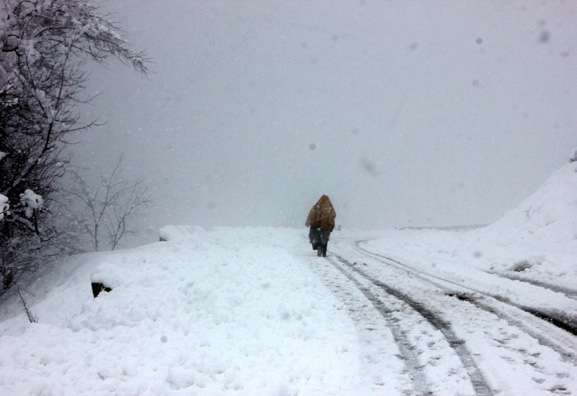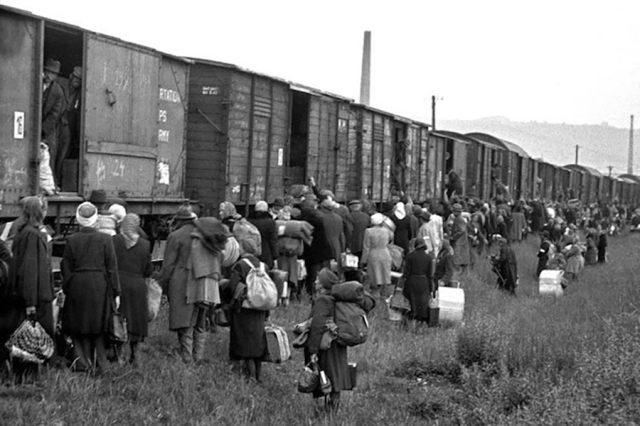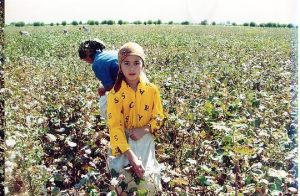Luke tells stories that no other gospel writer tells: the Rich Fool, Divees and Lazarus, The Prodigal Son, The Good Samaritan, The Pharisee and The Tax Collector to mention a few. Two stories on this list are among the most popular stories in the bible–The Prodigal Son and The Good Samaritan. I love telling both. In this blog, I will share the GOOD SAMARITAN.
30 Jesus replied with a story: “A Jewish man was traveling from Jerusalem down to Jericho, and he was attacked by bandits. They stripped him of his clothes, beat him up, and left him half dead beside the road.
31 “By chance a priest came along. But when he saw the man lying there, he crossed to the other side of the road and passed him by. 32 A Temple assistant walked over and looked at him lying there, but he also passed by on the other side.
33 “Then a despised Samaritan came along, and when he saw the man, he felt compassion for him. 34 Going over to him, the Samaritan soothed his wounds with olive oil and wine and bandaged them. Then he put the man on his own donkey and took him to an inn, where he took care of him. 35 The next day he handed the innkeeper two silver coins, telling him, ‘Take care of this man. If his bill runs higher than this, I’ll pay you the next time I’m here.’
36 “Now which of these three would you say was a neighbor to the man who was attacked by bandits?” Jesus asked.
37 The man replied, “The one who showed mercy.” Then Jesus said, “Yes, now go and do the same.”
Let me begin by telling you why Jesus told this story. The elitist Jews {Pharisees, Scribes, Priest, Sadducee’s} were very prejudiced. They had contempt for anyone who was not a Jew and actually, they had contempt for many Jews and the tax collectors are a good example. People in America talk about prejudice but they have no idea what this problem in like in other countries. The elite Jews despised Gentiles {us}, they loathed the Romans, and they had more respect for a stray dog than for a Samaritan. They treated Samaritan like they did not exist. They thought more of their live stock than they did Samaritans.
I came in late a few weeks ago and a woman had stopped in the middle of the road right in front of our house. Someone had hit a dog and she was concerned. After pulling into our driveway, I went out to see if I could help. The dog was hurt severely and was in a lot of pain. I carefully dragged the dog to the grass on the side of the road and then went into the house, got my wife’s 38 and went back to put the dog down. I didn’t enjoy terminating the dogs life, it was upsetting but I knew it had to be done. What if the dog had been human, say someone of a different ethnicity? What if had been an illegal alien? Would I have reacted differently? Yes, no matter what race, I would have called 911 and spared no effort to save the person’s life. I cannot imagine thinking of a fellow human as being of less value than a dog.
I have been to the Middle East and I can tell you, American’s know very little about racial strife and pure hatred. Jesus told this story because the elite Jews were trying to trap Him with loaded questions and Jesus took the opportunity to address their deep prejudice for the Samaritans, who were their closes neighbor.
A Jewish man was traveling from Jerusalem down to Jericho, and he was attacked by bandits. They stripped him of his clothes, beat him up, and left him half dead beside the road.
The Bandits or thieves represent a segment of our society–the criminally minded. Their credo was–What’s yours is mine and I am going to take it, by force if necessary. These are they who respect no laws and seem to get a kick out of shedding innocent blood. This group is prone to violence, they will beat you up and leave you to die. They have no compassion, no sympathy and certainly no love. You and I love to help people, this groups loves to hurt people. This segment of society ruthless and relentless. They enjoy crime.
I’m not reading between lines, all of this is in the story. Bandits is plural, the Jewish man is singular. The bandits had him hopelessly out numbered so there was no reason to beat the man half to death. They could have easily over powered him and taken his valuables and then let him go but not, they beat him up just for pleasure. No reason to beat him up but it is second nature to an thug.
The second group are the Jewish Religious leaders, the Priest and the Levite. Their credo is, “What is mine is mine and I am going to keep it.” As I say often, this group wants to get all they can; can all they get and then set on the lid so no one else can get any. They don’t want to owe all the land, just every parcel that connects to their land. This group is selfish and satisfied. They are more concerned about comfort than they are conversions. They are driven by the instinct of self-preservation. This is the group who gives advice but not money. They are all talk and no walk.
The third group is the represented by the Good Samaritan. Their credo is–“Whats mine is yours and I am going to share.” These are you good neighbors. The Good Samaritan represents those who care; the compassionate who are willing to take risk for the sake of others. The man gave of his time, resources and even committed to long term care. How refreshing in light of the callous, indifferent and self-centered Jews who passed by a fellow Jew and would not help due to the risk involved.
The number one reason people do not get involved in ministry is their self-centeredness; their inability to put others first. No one will ever become a minister when their primary concern is themselves. A second problem in ministry is fear. Travel was dangerous in ancient times. The same group of bandits who robbed and beat this man half to death could still be in the area, the Priest and Levite were not taking any chances. Folks, there is no such thing as “Risk Free Ministry,” all ministry involves a risk. These two men were lacking in courage: ministry is not for cowards. The Samaritan risk rejection, he risk attack, he took a risk with his investment; would he be thanked by the Jewish community. Would his act of kindness be appreciated. Would he get a thank you note in the mail? Would the man repay him when he got on his feet?
When people demand answers to all their questions before they involve themselves in ministry, they will never get involved. They may talk about ministry but they will never engage in the act because they want guarantees and there are no guarantees in ministry.
In Luke 10:2, Jesus said, “The harvest is plentiful, but the workers are few.” In John 4:35, Jesus said, “Don’t you have a saying, ‘It’s still four months until harvest’? I tell you, open your eyes and look at the fields! They are ripe for harvest.” This is one of those verses where I have wanted to argue with Jesus, “LORD, how can you say this when no one is interested in hearing the gospel. I am getting doors slammed in my face and You say the fields are white unto harvest.” I never understood what Jesus was talking about until recently. When Jesus sent out the 72 in Luke 10, He sent them with two basic instructions: Heal the sick who are there and tell them, ‘The kingdom of God has come near to you.’ [Luke 10:9] Jesus sent them to all the towns and villages that He was going to visit so these guys were his “Front Teams.” He gave them the power to heal so they could connect with the people but there real mission was to announce His coming. Ministry would get their feet in the door, Jesus would follow up with the gospel of Salvation. Its a kind of ministry first evangelism.
What are our communities filled with? The answer is hurting people. You will not have to go far to find a hurting person. My next door neighbor spent five years in prison and I did not visit him a single time. I apologized to him a few weeks ago. I am ashamed of myself. You see, I did not know him that well, I thought about visiting him but did not. I have made and effort to get to know him since he came home and now I am deeply ashamed for not being a neighbor to him. I guarantee you that there are hurting people close by but you know so little about them that you are not comfortable offering your help.
I will guarantee that any Sunday School class, small group or congregation who ministers to hurting people will grow. You will reach people with the gospel of Christ if you are willing to get to know them and help them; touch them at the point of their pain. When you think about evangelism from this point of view, you can see the white fields.
So this story contains three segments of our population: the criminal mind, the moral but selfish and the compassionate. BUT there is a fourth group here that is easy to miss and that is the “Hurting.” The beaten man in the ditch represents the hurting world. His being half dead speaks of his spiritual condition, alive physically but dead spiritually. In other words, he can represent lost humanity but he also represents those hurting physically [sickness or injury] and those hurting emotionally.
I am not a doctor so we will not address the sick or injured; I am a pastor and I can address emotional pain. First of all, this man is the victim, not the perpetrator. He did not do anything to deserve getting beat half to death. He just happened to be at the wrong place at the wrong time. The bandits had the element of surprise and the numbers. They beat the life out of him and he is left to die in his own blood. I see him as semi-conscience, like being under gas when they cut out a wisdom tooth. You can see, hear, think but you can’t respond: you are virtually helpless. When he saw the Priest coming, he probably thought, “Great, here comes a man of God, He will certainly help.” But the priest, after seeing the man, crossed to the other side of the road. He didn’t even want to take a closer look. He kept right on going. Truth be known, he probably accelerated his pace. He didn’t care. He had no compassion. It was not his problem, he had sermons to prepare and services to attend.
Then along came a Levite, those who maintained the Temple. This man was a full time employee of the church, surely he cared. He did go take a look at the hurting man but then he too passed by on the other side. He didn’t want to get involved: it might make him late for church. We are so focused on going to church that we have forgotten how to be the church. A large percent of Baptist think attending services is church. It’s not, it is a part of church but helping the hurting is just as important or more so than being on time for the service.
Let me ask you a question; a soul stirring question: What hurt the beaten man the most, the clubs of the robbers or the indifference of the priest and Levite, his Jewish brothers? Some are hurting physically but there are many, many more that are hurting emotionally and spiritually. I have had a broken heart on more than one occasion. I know what it feels like to get your heart broke. Usually, it takes a major disappointment. You fell in love with someone and thought they would be your soul mate only to find out, they did not love you in the same way. You had a trusted friend or so you thought but this friend betrayed your trust. You search for your biological parent and fine them, only to be rejected a second time. I know two women personally that this very thing happened two. Can you imagine the emotional pain of your own father telling you: “Don’t come back, don’t call and don’t send cards. I never want to see you again.” Mothers can do it too. A young man called his estranged mother on Mother’s Day because the pastor challenged everyone to reach out to their mom and appreciate them. When he got home from church, he called his mom to thank her for giving him birth. She said, “Don’t ever call me again. I do not want to see you and I do not want to see your children.” A teenage girl was running the checkout in a dollar store and her grandmother came through. The young lady waited to see if your grandmother would recognize her, she didn’t. As a last resort, the young lady said to her as she began to leave, don’t you know who I am? She looked at the girl with a blank stare and said, “You sure look familiar.” The girl said, “I should, I am your granddaughter.”The woman said, “Oh my goodness, you have really changed, I didn’t even recognize you.”
When someone who is suppose to care doesn’t, it hurts. The priest was suppose to care but he didn’t and so was the Levite. Our insensitivity toward the hurting is mind-boggling. There is a broken heart on every pew and we ignore them. We are afraid to get close, to get involved. We keep people at arms length just in case they may need something. If we only cared about the hurting.
We have this idea that hurting people wear a sign that says “Notice me, I’m hurting.” It is true that some hurting people are hurtful. They are bitter, cynical and are prone to strike but most hurting people are silent. They don’t moan and groan, they don’t demand attentions. They really don’t do anything to call attention to themselves.
Think about this hurting man for a moment. The robbers took his clothes so he is lying naked in his own blood. A part of him does not want to be seen or noticed. He feels the shame of his nakedness. I’ve been there, I know what it is like to want to be noticed and yet not noticed. Many hurting people withdraw because they don’t want their hurt exposed. Their pain is very personal. They cannot reveal their pain without making themselves vulnerable. You may be living in the same house with someone who has a broken heart and you haven’t noticed.
Many years ago I heard the story of a woman who thought she would surprise her husband by going to the restaurant where he was in a habit of eating lunch every day. He was there and so was a group of his buddies. He was also surprised but he didn’t respond like a loving sensitive husband. He scolded her for coming. He even told her in front of his friends that she had embarrassed him and that she was never to do it again. It was years before she had to the courage to share this painful story with a friend. Is that the kind of story you want to share: I don’t so. I have some stories that I don’t want to tell.
I don’t care what counselors say or other professionals: the number one problem in marital relationships is the refusal of one or both partners to listen to and be sensitive to the others pain. People go see counselors because no one at home will listen. No one will listen because no one cares. The fields are white but it takes caring people to see them and to enter them. Oh, the folks we could reach, if we only cared.








